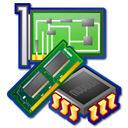Windows
Jump to navigation
Jump to search
| Read this page and still need help? Check out the Kodi for Windows support forum. |
Kodi for Windows runs natively on Windows 7, Windows 8, Windows 10 and Windows 11. 1080p and 4K playback can be achieved on Windows based computers either via software decoding on the CPU if it's powerful enough, or by hardware accelerated video decoding. Kodi for Windows supports several MCE remotes out-of-the-box, among others.
Main topics
Other Windows-specific wiki pages for topics, guides, and advice. For everything else, standard Kodi pages will normally apply.

|
HOW-TO:Install Kodi for Windows |

|
Supported hardware Kodi is officially supported on a number of operating systems and hardware devices that are designed to be connected directly to a TV. Kodi runs well on what are relatively "underpowered" systems, thanks to hardware video decoding being common on nearly all supported platforms. These requirements don't include what might be required for some "advanced" features, such as PVR, which might require additional hardware. |

|
Windows_development Team Kodi (formerly called Team-XBMC first ported XBMC Media Center software to Windows in 2008, and the whole project cross-platform application was renamed to Kodi in 2014. Kodi itself is a huge open source project and it takes loads of people working together to maintain it for all platforms, that is why Team-Kodi is always on the lookout for C/C++ programmers to volunteer in assisting us with the development of Kodi. Whether you have contributed to the Kodi/XBMC project in the past or not, please consider doing so now.
|
Requirements
See also: Supported hardware
| Windows Version |
| ||||||||||||||||||||
|---|---|---|---|---|---|---|---|---|---|---|---|---|---|---|---|---|---|---|---|---|---|
| CPU | x86 or x86-64 processor such as: Intel Pentium 4/ Pentium M, AMD Athlon 64 / Opteron, or newer CPU (that support SSE2, which all CPUs made within the last 10-years does).
| ||||||||||||||||||||
| RAM |
| ||||||||||||||||||||
| Graphics |
GPU hardware must support at least level DirectX version 9.0c however the GPU software drivers must support the DirectX 11 Feature Level 9.1 (which means the DX11 API has been implemented in the GPU software driver to be compatible with DX9 hardware) | ||||||||||||||||||||
| Video decoding | On low-performance CPUs to playback 1080p content then hardware video decoding maybe necessary.
| ||||||||||||||||||||
| Drive space | The Kodi application generally only takes up between 100 to 200 MB of space, depending on how the binary is compiled. Technically speaking, if your hardware supports netbooting, you do not even require a internal storage for either the operating-system or for Kodi.
|
How-tos
This page describes how to set up audio for the Windows OS. It covers how to set up Kodi when using either Directsound or WASAPI, and when to use one vs the other.